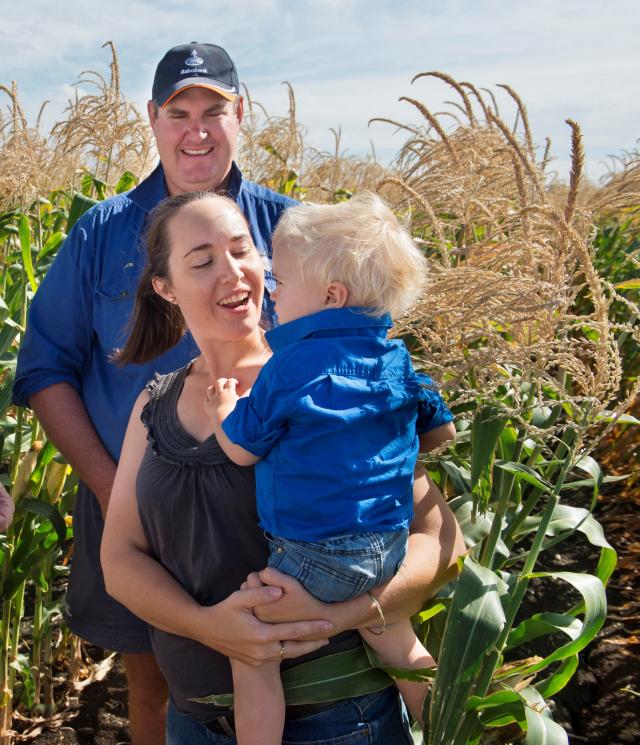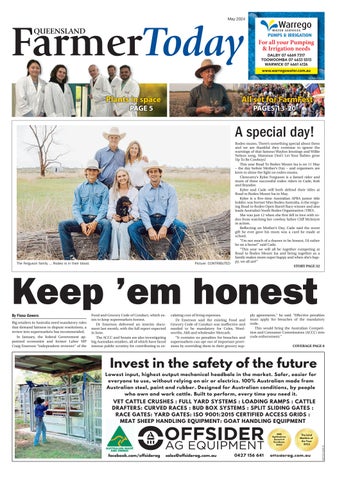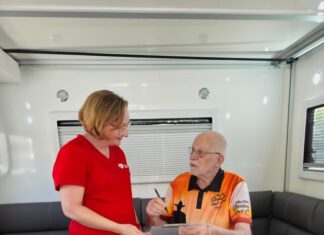From zero allocation to 100 per cent, it has certainly been a tale of two cotton seasons for Danni Ingram on the Central Highlands.
Based on the western irrigation scheme, Danni, who together with her husband Robert and two children, farms the 600-hectare irrigation property “Avondale” west of Emerald.
Due to seasonal conditions in 2022, the Ingrams delayed planting their 520ha of cotton to September/ October but consistent rainfall received since has kicked the Bollgard 3 plants along.
“We’ve had a rather wet season, which is quite different,” Mrs Ingram said. “But it has been good to set up the crop nicely.
“We’re quite happy with how it is shaping up at the moment, but a lot can happen . . . “
“Avondale“ has been in the Ingram family since Robert’s parents Bob and Anne bought it as an undeveloped block in 1978.
They began growing cotton in the early 1980s, phasing in genetically modified varieties as they became available, which Mrs Ingram said had significantly reduced chemical spraying.
She said the Bollgard 3 Roundup Ready plants also allowed access to weeds and regrowth early, which meant fewer applications and additional environmental benefits.
“Basically, we inspect (the crops) twice a week, assess what’s out there and what actually needs to be controlled based on thresholds we feel comfortable with,” Mrs Ingram said.
“We now only spray on an as-needed basis.”
Rotating between corn, chickpea and cotton has increased cash flow for the Ingram’s business and reduced risk while also increasing soil health.
“The three crops fit well into our winter/ summer rotation,” Mrs Ingram said.
“Corn also has the added benefit of being a good break crop for disease.”
The Ingrams irrigate their one-metre, black soil beds when their “moisture probes” detect a deficit in the soil.
A critical part of their cropping management, the moisture probes explain how many millimetres of water are drawn from the soil per day.
“It is great technology and we’ve used less water this year due to having a wetter season as well, so it really helps,” Mrs Ingram said.
“We schedule our irrigation based on information from the moisture probes. Water is not cheap so, yeah, we try to utilise it to the best of our ability.”
Another string to the “Avondale” irrigating bow are two centre pivots that Mrs Ingram said have enabled even greater flexibility for their business
“The country that we needed to irrigate was up a bit of a slope so we needed to go in this direction,” Mrs Ingram said.
“But the beauty of overhead irrigating is the speed at which we can harvest and replant.”
Mrs Ingram said she expected to pick the 2022/ 23 cotton plants with round-bale pickers in April/ May.









